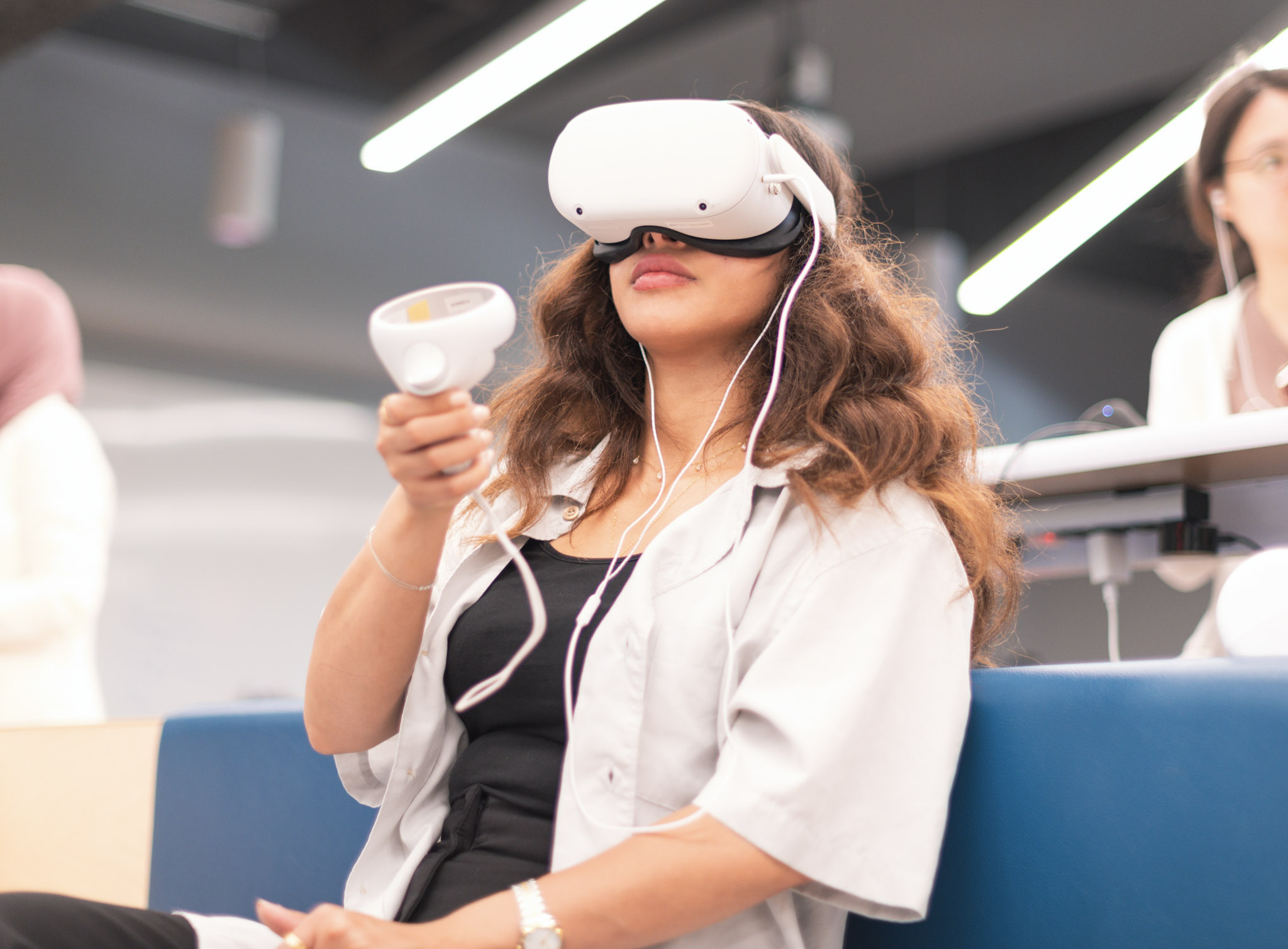-
VR in Language Learning: A Game-Changer at ASU
The article from Arizona State University News highlights the innovative application of virtual reality (VR) in language learning. The focus is on employing VR to teach English, especially to international students. VR’s immersive capabilities enable realistic simulations of social interactions, which are crucial for understanding cultural and linguistic nuances in communication. This method has shown significant positive results, enhancing students’ spoken English skills. The project, involving collaboration with a language-learning software company, was part of a larger exploration of integrating AI and VR in language education. The success of this initiative has led to considerations of incorporating VR more extensively into language teaching curriculums.
Based on the article, it’s evident that virtual reality (VR) technology holds significant potential in enhancing language learning, especially English. By providing an effective and immersive environment for students, VR helps overcome barriers related to self-consciousness and cultural communication nuances. This innovative approach, as seen in the project at Arizona State University, not only improves spoken English skills but also prepares students for real-life social interactions in new cultural settings. The success of this method suggests that incorporating VR into language teaching curriculums could be a valuable step forward in the field of English language education.
news.asu.edu
Learning language with AI, virtual reality
ASU Global Launch is using virtual reality to give students a safe space to practice English and gain confidence in their communication abilities.
Sorry, there were no replies found.
Log in to reply.
